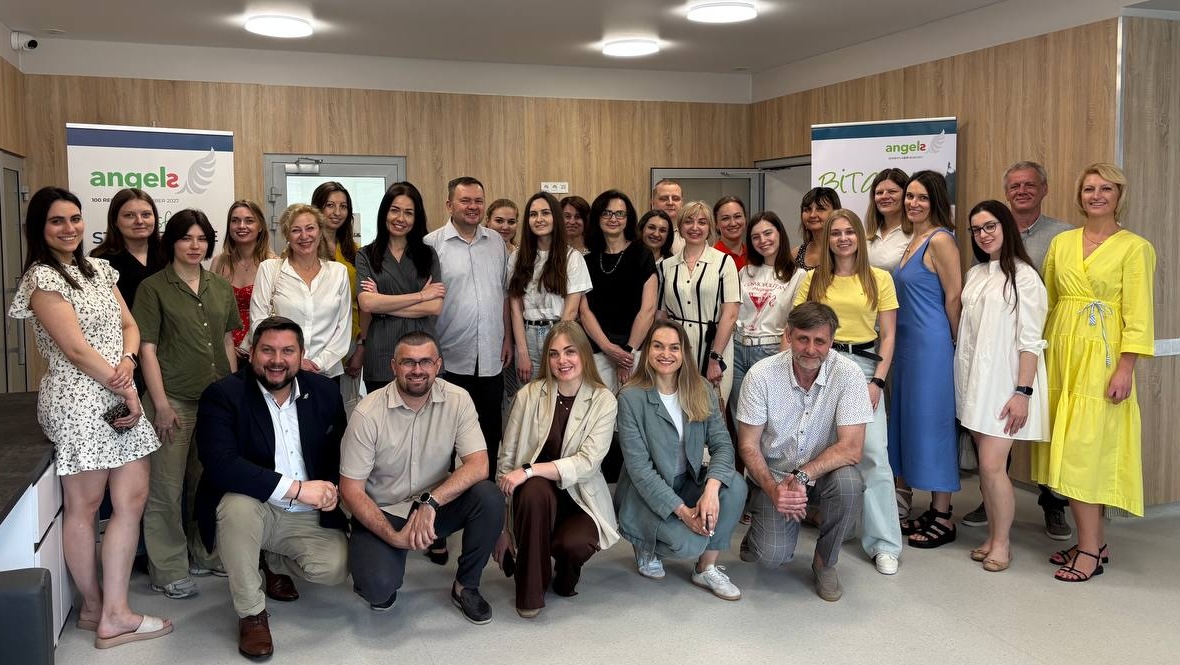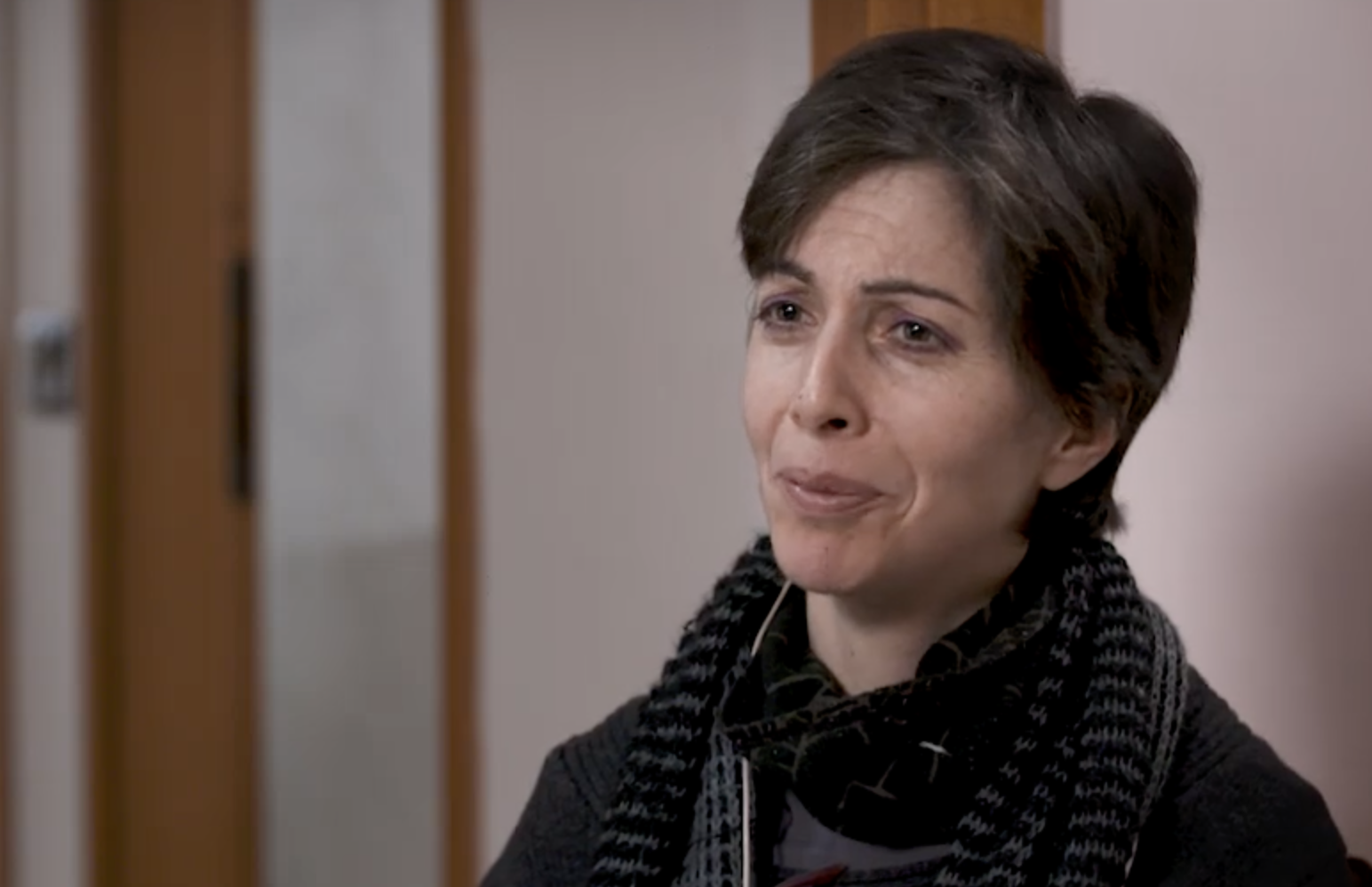
La vie de FABIANA Cinelli a changé à 21h30 un dimanche d'avril 2012.
La dernière chose dont elle se souvient est de parler au téléphone avec sa mère, puis de rentrer son fils le plus jeune dans son lit et de l’embrasser.
Quelques minutes plus tard, son partenaire l’a trouvée sur le sol de la salle de bain où elle était allée chercher un soulagement pour un mal de tête. Racontant son histoire dans une vidéo enregistrée six ans plus tard, Fabiana lève les doigts de sa main gauche sur ses lèvres comme si elle déverrouille le mot 'comprimé'.
Ayant été alerté en même temps que le service médical d’urgence, les parents de Fabiana étaient à l'hôpital à son arrivée – en ne pouvant plus parler ou bouger son bras droit.
Non ! non ! ils se sont disputés lorsque le médecin de garde s'est questionné sur Fabiana, 37 ans, en toxicomanie ou hystérique : "Elle doit avoir eu un accident vasculaire cérébral. Comprenez-vous ce qu’est un accident vasculaire cérébral ?
La scanner TDM de Fabiana était normale, probablement parce que les changements causés par l'accident vasculaire cérébral n'étaient pas encore visibles sur une TDM sans injection de produit de contraste. Une angiographie par TDM ou une IRM, que l’hôpital était tous deux équipé pour réaliser, n’ont pas été envisagées. Au lieu de cela, une ponction lombaire a été réalisée.
Quelques heures plus tard, un autre médecin est venu au service et, à la découverte de Fabiana semi-paralysé et muet, a immédiatement diagnostiqué un accident vasculaire cérébral ischémique. Il a insisté pour qu’elle soit transférée vers un hôpital à Rome, mais les roues du transfert interhospitalier se sont lentement broyées et, au moment où Fabiana est arrivée à Rome vers 13 h le lundi, 15 heures se sont écoulées depuis sa découverte au sol de la salle de bain.
"Imagine", dit-elle, en pointant la tête, "l'état dans lequel mon cerveau a dû être".
Quatre mois se sont écoulés avant que Fabiana ne rentre chez elle, et deux ans avant qu’elle ne dise son premier mot. La fin de son mariage a déclenché la percée. Elle marche avec les doigts de sa main gauche pour montrer à son ancien partenaire la direction de la porte. Sans personne pour parler à sa place, elle a dû trouver sa propre voix.
Elle a commencé à faire de petites phrases : "Ho fame. Ho sete." –comme quelqu'un qui maîtrise les bases d'une langue étrangère. Mais ça s'est amélioré jour après jour et bientôt, dit-elle, elle a pu demander "un apéritif et on peut ajouter un peu de glace et une tranche de citron".
"Evviva !" elle rit, agite le poing.
Elle rit à nouveau alors qu’elle se souvient avoir regardé un match de la Ligue des champions de l’UEFA après que la vie a commencé à revenir à la normale. "Je sange !" elle s'exprime et lance dans l'anthème nationale italienne, en respectant le temps d'un doigt.
Fratelli d’Italia,
Italia s'è t deta ...
L'accident vasculaire cérébral a peut-être affecté sa parole et sa démarche, mais cela n'a pas diminué son sens de l'humour ou volé une once de son charme. Sa force est évidente lorsqu’elle annonce à la caméra : "Les plus jeunes sont les chanceux d'une tragédie. Nous sommes plus forts. Nous avons un objectif dans la vie. On a le temps, on a la mémoire de comment bouger un pied, bouger l'autre. Sur le plan cognitif, nous sommes forts... Soyons ensemble et donnons-nous la force l'un de l'autre parce que le accident vasculaire cérébral ne peut pas gagner".
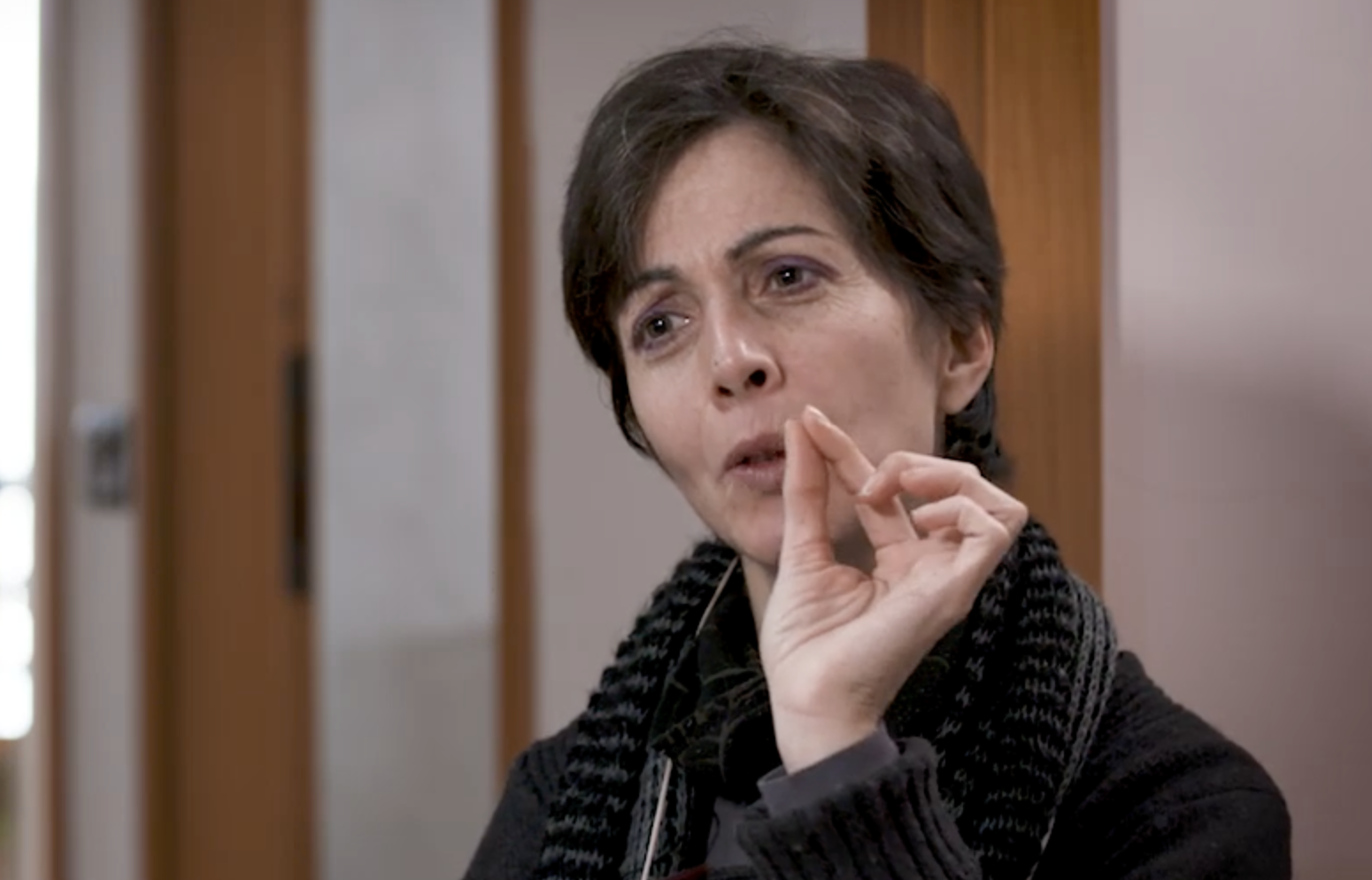
JUSTE plus d’une décennie après l’accident vasculaire cérébral de Fabiana, l’hôpital où elle a été admise sur 8 avril 2012, a remporté un Prix Angels ESO pour les soins neuro-vasculaires – l’aboutissement d’un projet qui a pris cinq ans et le dévouement de quatre consultants Angels.
Le Santa Maria Goretti Hospital en Latina est l'un des 14 centres neuro-accident vasculaire cérébral desservant les 5,7 millions de citoyens de la région du Lazio en Italie, et parmi les quatre hôpitaux qui ont été désignés pour devenir des centres après la mise en place du protocole régional en 2020. Lorsque Lorenza Spagnuolo a inclus l’hôpital avec Angels en 2018, ils n’avaient traité que 34 patients et leur délai d’attente avant la prise en charge dépassait 100 minutes. Entre 2019 et 2020, Elisa Salvati et Lorenzo Bazzani ont organisé des ateliers de formation et des simulations, organisé des réunions multidisciplinaires et réorganisé le parcours de l’accident vasculaire cérébral. Le conseil d'Alessia Santori a débuté vers la fin 2021. En plus d’inclure Santa Maria Goretti dans le projet de surveillance de la qualité MonitorISA et de travailler sur la standardisation et la prénotification avec les SMU locaux, elle a mis en œuvre une stratégie régionale qui incluait à la fois l’implication des hôpitaux centraux et des hôpitaux parlants dans les réunions et les ateliers, et le rapprochement de la communauté accident vasculaire cérébral Lazio pour une Journée Angels qui a abouti à un plan d’action pour la région.
Une fin heureuse est apparue lorsque l’hôpital Santa Maria Goretti a récolté deux Angels Awards ESO consécutifs en 2023. Ailleurs dans la région, les centres nouveaux et établis montrent un intérêt pour l’émulation du réseau Latina.
Il est souvent indiqué qu’un patient ayant subi un accident vasculaire cérébral meurt ou devient handicapé définitivement toutes les 30 minutes parce qu’il a été conduit au mauvais hôpital. L'objectif de Lazio était de faire de Santa Maria Goretti l'hôpital "droit" afin que les histoires comme Fabiana aient toujours de meilleures terminaisons.
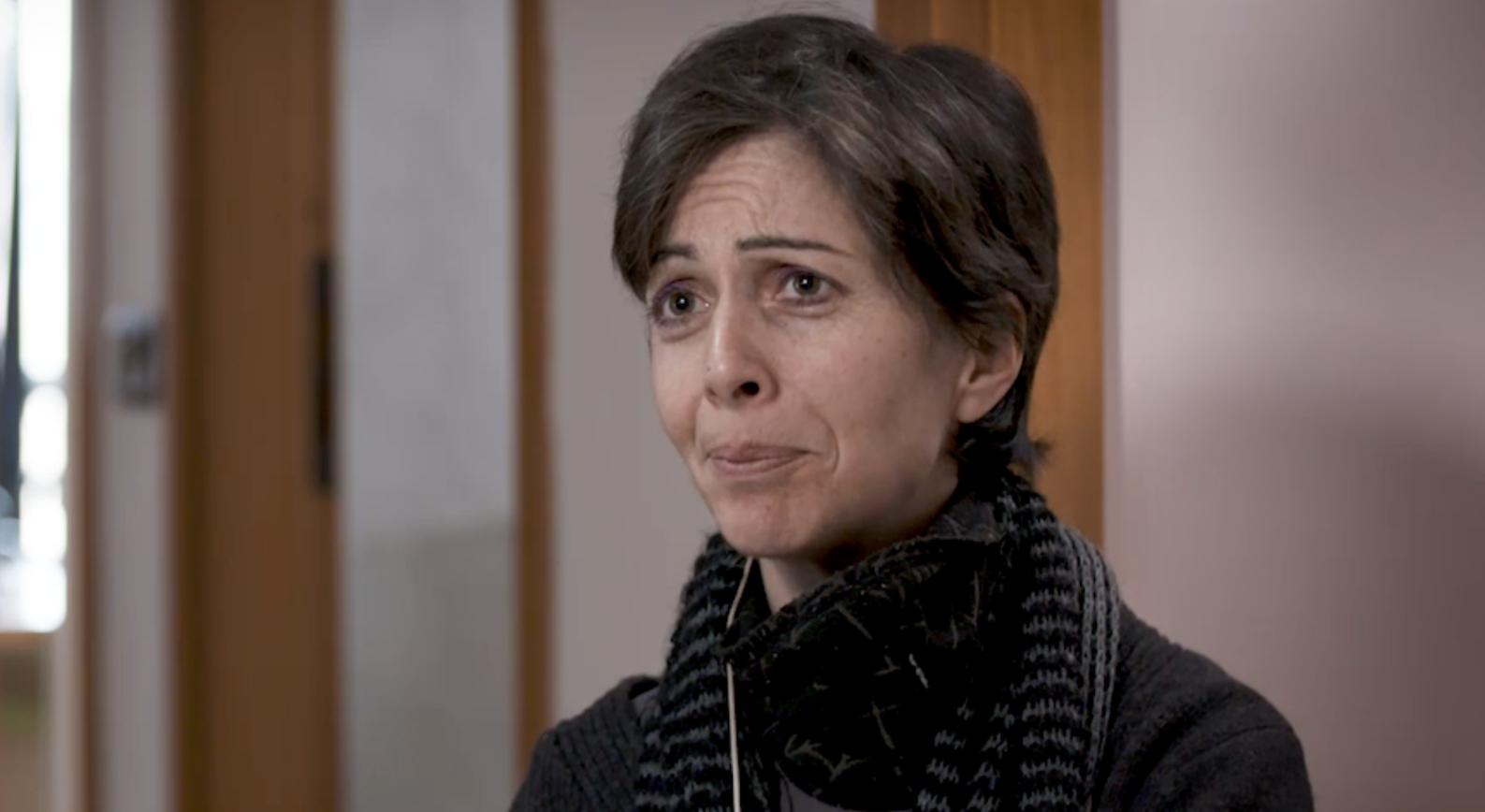
FABIANA a maintenant 48 ans et vit toujours en Latine où elle travaille à temps partiel dans un bureau.Au cours des cinq dernières années, elle a fait des progrès en matière de parole et de marche. Les marches tôt le matin l’aident à se sentir équilibrée et sont l’occasion de réfléchir à sa vie. Elle a récemment commencé à marcher pour aller travailler.
Mais elle sait aussi maintenant que "ne pas laisser la victoire de l'accident vasculaire cérébral" va au-delà de la surmonter les déficits neurologiques après un accident vasculaire cérébral – il s'agit également de rechercher l'inclusion dans une société indifférente et impatiente.
Diplômée en droit, Fabiana a essayé de travailler au tribunal local, mais ses handicaps ont mis ses collègues mal à l’aise et elle a quitté la société. Elle mène des campagnes pour une société accessible aux personnes handicapées qui inclut des personnes aux capacités différentes, mais dit que le taux de changement est imperceptible, "au moins dans ma province".
"On est toujours très invisible. J'ai de la chance parce que je peux conduire une voiture et marcher, mais les bâtiments publics et les transports en commun ne sont pas encore accessibles aux nombreuses personnes qui utilisent des fauteuils roulants. En général, je pense que la société n’est pas prête à nous comprendre. Personne ne fait preuve de patience lorsque je parle mal ou lentement. D'autres personnes qui ont subi un accident vasculaire cérébral sont d'accord que la seule empathie que nous éprouvons provient de nos familles et les unes des autres".
Les fils de Fabiana sont maintenant 21 et 11 et consommés inévitablement par leur propre vie. Elle dit "Francesco et Andrea étaient proches de moi à l'hôpital lors de la toute première phase de récupération. J’ai trouvé de la force dans l’amour que j’ai pour eux, et cela m’a aidé à m’améliorer. Mais j'ai peur qu'ils n'aient pas encore compris comment être proches de personnes ayant des capacités différentes".
Outre le soutien de son père, qui s'occupe également de sa mère handicapée, une "famille" de survivants d'accident vasculaire cérébral aide Fabiana à se sentir "plus proche et mieux comprise". Elle dit : "Je travaille dur pour éviter de tomber dans la dépression et ce qui m'aide le plus c'est de parler aux jeunes patients accident vasculaire cérébral. Je n'aime pas parler aux gens normaux parce que je n'ai pas l'impression qu'ils peuvent vraiment comprendre".
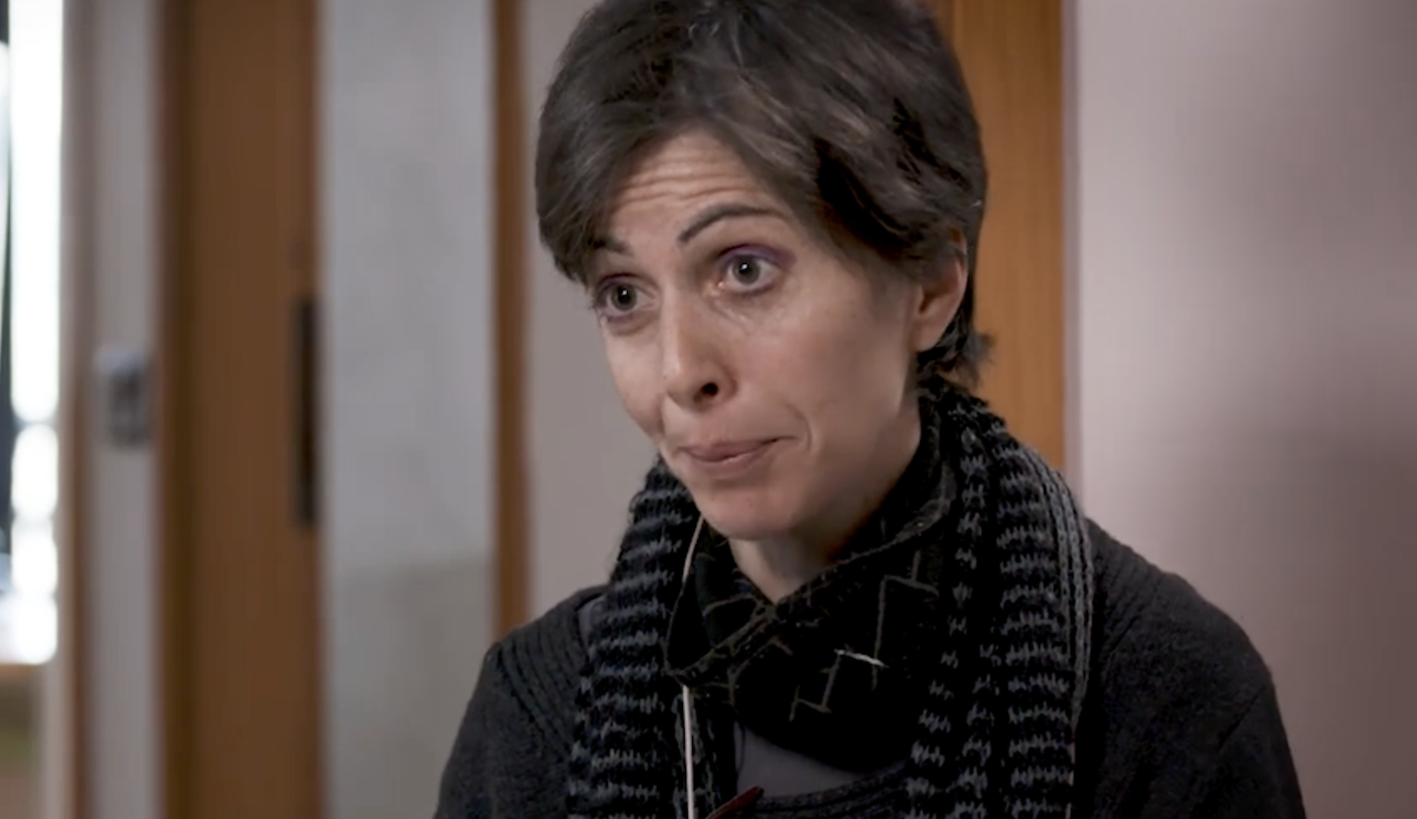
Si le discours lent et délibéré de Fabiana rend certaines personnes mal à l'aise, il est probable que ses derniers mots les dénervent encore plus. Parlé comme si chaque phrase était son propre paragraphe, son message est transmis avec une clarté et une force inhabituelles :
"Nous ne sommes pas désactivés. Chacun d’entre nous, tout le monde, est capable différemment.
"Qu'est-ce que ça veut dire ?
"J'ai des problèmes avec mon discours.
"Et la façon dont je marche.
"Et toi ? Quel est votre problème ?
"Je suis sûr que vous avez un problème, donc on est tous différents.
"Mais on sait que notre raison c'est un accident vasculaire cérébral.
"Quelle est la vôtre ?"


